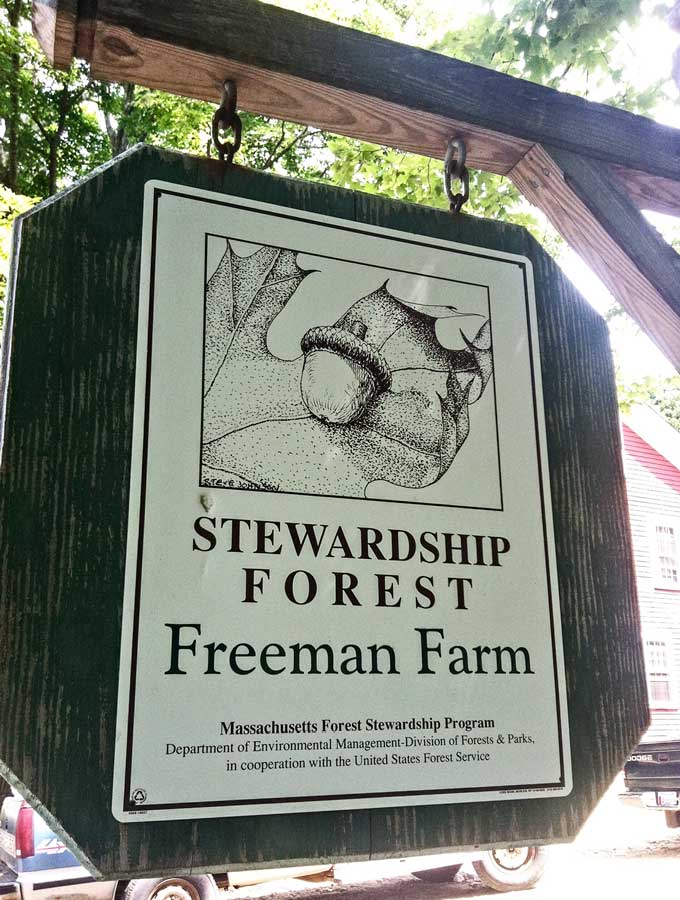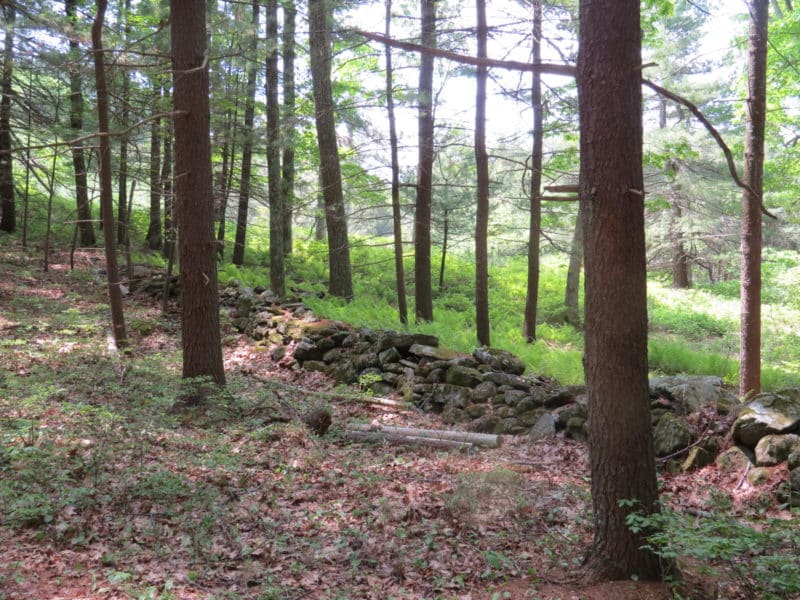Mr. Norcross had great foresight to conserve land in and around his hometown of Monson, Massachusetts. In his lifetime (1896-1969) land in this area was not being converted from farms or woods at the rapid pace that we are experiencing now. Beginning with 100 acres inherited from his father, Norcross then bought and bartered land as he established Tupper Hill. Today, his legacy totals over 8,000 acres.
Land that has been acquired for conservation purposes, whether by Norcross, your local land trust or your community, provides many benefits: Habitat for wild animals and plants (common or not so), places to hike, clean air, clean water and carbon sequestration to name a few. One byproduct that I find fascinating is the history preserved, sometimes completely by accident.
Stone walls are prevalent in our woods. Some are constructed so well they still stand tall while others have fallen due to weather and gravity. These sentinels mark boundaries from long ago. Follow them and you may come across a cellar hole, the footings for a barn, or a root cellar. Our landscape is dotted with these old homesteads. Those who built them are long gone yet their hard work remains visible.
Think about the barbed wire you see “growing” out of an old tree—there’s a great example of this here as you exit the Visitors’ Center and head toward the Vernal Pool Trail. Who tacked that to the tree? When? Why? What about that stone wall nearby? Who took the time to build it? How long did it take?
A wonderful place to explore the answers to these questions is Harvard Forest’s Fisher Museum in Petersham, Massachusetts. Their artistic dioramas walk you through the land-use history of New England, beginning with the ancient forests that existed here before colonists arrived. As settlers cleared the land, the very walls we see now were built from the plentiful stone to fence in crops and livestock. Now these memories lie in dark woods, perhaps on protected land, and may pique your curiosity about the past.



